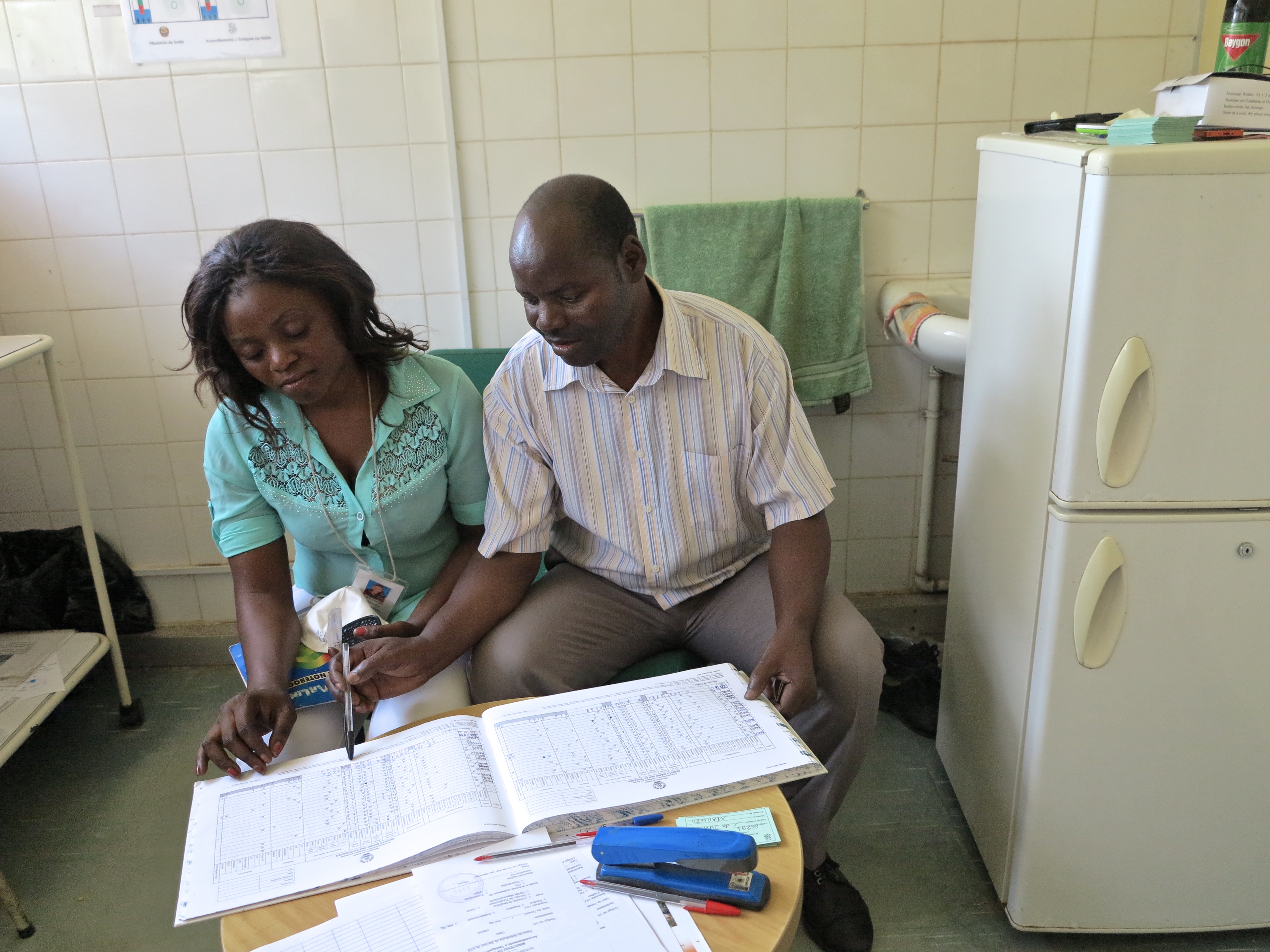Community Health Advocates Help Realize Right to Health for All in Mozambique
Description
In Mozambique, grassroots justice defenders in the form of community health workers at Namati worked collaboratively with the Ministry of Health to pilot, adopt, and implement and effective tool for increase access to health services, a critical justice issue to drive progress on the SDG agenda.
Grassroots justice defenders like community paralegals help promote access to justice and legal empowerment supporting the delivery of the SDG 16 ambitions to achieve equal access to justice for all by 2030. Access to health is a critical pillar towards achieving access to justice with cross-cutting linkages to the entire SDG agenda. Since mid-2016, Namati began working alongside village health committees to conduct bi-annual health facility assessments at 62 centers. This approach gathers detailed feedback from communities and health workers and assists them in identifying and prioritizing barriers to care. Committee members then analyze the root cause of each challenge, agree on strategy, and commit to specific actions and timelines. <br />
<br />
In Mozambique, grassroots health advocates work to address this gap between policy and reality by blending approaches known as legal empowerment and social accountability. They raise awareness of health policy, support clients to seek redress for grievances, and facilitate problem-solving dialogues between communities and health facility staff. In three years we have seen communities begin to overcome a culture of silence.
Health advocates work alongside local health committees to assess health services twice yearly. The tool that is used for assessment is user-friendly and incorporates important feedback from the community, as well as the health workers themselves. The health advocates, alongside the health committee members, then analyse each problem, plan strategies and next steps, outputs, and deadlines. This consultative and inclusive process from the grassroots level to the government allows Namati, communities, and the government to track progress on barriers to the right to health in their community over time.
In 2018, we turned the focus of our advocacy efforts towards ensuring implementation even in places where we are not on the ground. Eighteen health facilities in the provinces of Maputo and Inhambane sought our assistance in getting started. With training from Namati, they have begun implementing bi-annual assessments in conjunction with the communities they serve.
Some of the constraints include financing and protection for grassroots justice defenders. The SDGs should have shifted the financing landscape for access to justice work. Major financial commitments accompanied the launch of 2030 Sustainable Development Agenda: $956 million USD from the Gates Foundation and the UK government for nutrition; $25 billion USD in public and private financing for a global strategy to improve healthcare for women and children. But there were no financial commitments made to access to justice. As a result, a lack of sustainable financing remains one of the biggest issues facing the legal empowerment community today. In 2017, a Global Legal Empowerment Network survey found that 67% of members would have to make cuts or would not be able to operate in the coming year due to funding sustainability concerns. This does not bode well for fulfillment of the SDGs. Unleashing the potential of legal empowerment groups requires dedicated investment on the part of governments and international donors.
Unfortunately, the uptake of the 2030 Agenda has coincided with the reduction of civil society space in many countries across the world. Governments are increasingly changing the spaces and institutions through which citizens engage. Legal barriers are being erected to limit the activities of civil society organisations, restrict their ability to receive funding, and reduce their autonomy from the state. Some governments, rather than constrain civil society through law or policy explicitly, do so by fostering mistrust of organisations and portraying them as ‘agents of external forces and corrupt entities’. This leaves little space for civil society organisations to engage with SDG16+, and may actually increase their chances of being harassed for such engagement. The closing of civil society spaces has put grassroots justice defenders increasingly at risk.
Engagement in bi-annual health facility assessments has empowered community members to break their silence and overcome barriers to care which had previously gone unaddressed, including violations of confidentiality and privacy, lack of access to information, bribery and disrespectful treatment. In 2017, after seeing firsthand evidence of its impact, the Ministry of Health formally recognized Namati’s biannual health facility assessments as part of its national strategy on humanization and quality of health services.
SDGS & Targets
Deliverables & Timeline
Resources mobilized
Partnership Progress
| Name | Description |
|---|
Feedback
Action Network


Timeline
Entity
Region
- Africa
Photos

Website/More information
Countries

Contact Information
Coco Lammers, Senior Campaigns and Advocacy Officer
